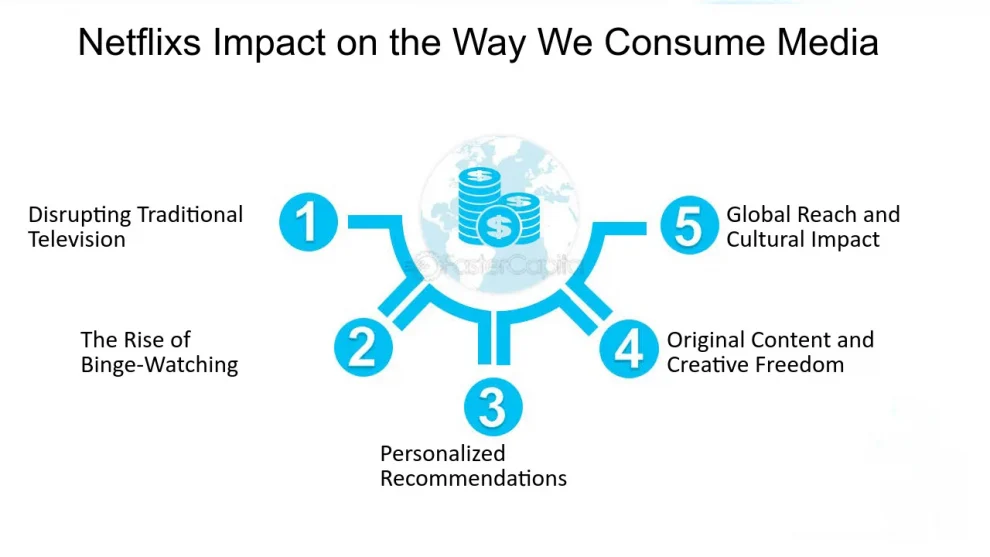Netflix has evolved from a simple entertainment service into a powerful media tool that influences global perceptions, often aligning with U.S. and Israeli ideologies, which critics argue distorts cultural narratives and normalizes Western viewpoints.
Originally an entertainment platform, Netflix has transformed into a significant media influencer, reaching millions globally with content that critics say promotes U.S. and Israeli narratives while downplaying or misrepresenting other perspectives, including Turkish and Muslim identities. Through its strategic storytelling and representation of minority groups, Netflix is often seen as imposing specific socio-political agendas, such as Western lifestyle ideals, rather than fostering genuine cultural diversity. These concerns underscore the need for “digital cultural security,” as countries consider how global media platforms can reshape cultural identities and impact public opinion.
By Dr. Muhammed Ersin Toy, Media Analyst
Netflix, initially branded as an entertainment streaming service, has evolved into a global media powerhouse with considerable influence, often noted for its capacity to push specific narratives during key political and social moments. Widely accessible, with over 270 million subscribers across 190 countries, Netflix claims to be a “global internet television.” However, its role has shifted from mere entertainment provider to a platform capable of impacting socio-cultural and political viewpoints worldwide, particularly in promoting U.S. and Israeli policies.
Netflix, which started as a DVD rental service in 1997, has transformed through technological adaptation and today creates content that critics argue aligns with ideological agendas. It is often perceived as a platform normalizing certain Western ideologies, such as gender fluidity and LGBT+ themes, while minimizing or distorting other perspectives. The portrayal of Muslims as “terrorists” or “barbarians” in several productions has garnered significant criticism, though these representations face less public backlash than topics like LGBT+ narratives. This disparity highlights a lack of digital awareness in some societies, particularly in Muslim-majority regions, where understanding of digital representation and “digital homeland” concepts is limited.
Critics argue Netflix serves as an “agent of influence,” promoting U.S. and Israeli interests by molding public perceptions internationally. Through strategic storytelling, the platform allegedly advances soft power, subtly urging audiences to adopt favorable views of U.S. and Israeli policies. Societies are becoming increasingly aware of these tactics, sparking discussions about Netflix’s ideological influence beyond mere cultural diplomacy.
Global Reach and Local Impact
As one of the most influential digital media players, Netflix has adopted a dual strategy of producing locally relevant content while simultaneously promoting these productions globally. This approach allows Netflix to bridge cultural divides, creating a unified global viewership. For instance, Turkish productions on Netflix both highlight and reshape perceptions of Turkey’s culture. These productions often showcase Turkey as an appealing tourist destination with cultural richness, yet some portrayals of Turkish society as morally complex or regressive have sparked debate. This dichotomy raises concerns about how Turkish identity is presented, both to local viewers and a global audience.
Certain productions have represented Turks with negative stereotypes, portraying them as “barbarians” or “plunderers” and narrating historical events from the viewpoint of minority communities. Furthermore, these portrayals frequently echo controversial issues, such as depicting Fethullah Gülen sympathetically or creating content favorable to the PKK. Such narratives have fueled apprehension that Netflix misrepresents Turkish society and potentially distorts its values in the eyes of international audiences, fostering perceptions of moral decay and detachment from cultural heritage.
Content Strategy and Ideological Agenda
Netflix’s content choices have come under scrutiny for potentially prioritizing socio-political agendas over entertainment. While the platform often spotlights minority groups, critics suggest this inclusion is a marketing strategy rather than a genuine attempt to engage with their unique experiences. LGBT+ content, for instance, is seen by some as a vehicle for promoting Westernized values rather than merely representing diversity. In depicting these groups as highly modern and progressive, Netflix is argued to be promoting a certain lifestyle, subtly nudging viewers to adopt specific value systems.
The platform’s treatment of the Israeli-Palestinian conflict has also been contentious. Shows like *Fauda* have been criticized for casting Palestinian resistance fighters as “terrorists,” framing Israeli actions as defensive rather than aggressive. Similarly, productions such as *The Story of Moses* amplify the Jewish historical struggle while lending implicit support to current Israeli policies. The recent removal of several Palestinian-themed films from Netflix’s library has intensified these concerns, reinforcing perceptions that Netflix may be promoting a selective, politically skewed narrative.
The Need for Digital Cultural Security
Amid rising concerns about digital representation, societies are beginning to discuss the importance of protecting national and cultural values online. Concepts like “digital homeland” and “cyber security” have emerged, underscoring the need to monitor not only digital crime but also content that may distort cultural narratives. Rather than banning controversial content outright, which often backfires by sparking greater interest, experts advocate for transparent, fact-based responses to misleading representations. Public awareness and media literacy are viewed as essential tools, especially for younger generations, to critically engage with such content.
Recent backlash in Turkey against Netflix’s representation of historical conflicts highlights a growing digital consciousness. Politicians, academics, and media experts have stepped forward to counteract the platform’s portrayal of Turkish history by providing accurate narratives. This example underscores the importance of educating the public about potential biases in digital media, fostering a more discerning audience.
In sum, Netflix’s evolving content strategy reveals its role as more than an entertainment service; it is a sophisticated instrument of perception management. By uncovering the motivations behind Netflix’s content decisions and their societal impact, viewers can better understand its influence on global perceptions and social structures. Ultimately, such transparency is vital in enabling audiences to critically assess Netflix’s role in shaping cultural and ideological narratives worldwide.






